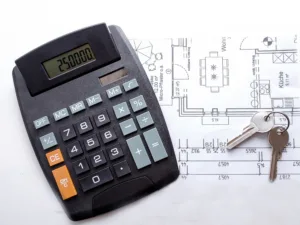Welcome to another insightful discussion at Bauwise. Today, we delve into an aspect of construction project management that is not just fundamental, but significantly impacts the bottom line – construction efficiency. In this rapidly advancing world, with towering skyscrapers and sprawling infrastructure, understanding and enhancing construction efficiency can be the difference between a project’s success or its costly failure.
Construction efficiency, at its core, is about optimizing resources and workflows, minimizing waste, and delivering projects on time without compromising quality. This not only cuts down costs but also promotes sustainability. Despite its pivotal role, many variables can affect this efficiency, creating a challenging landscape for project managers.
This article will serve as a comprehensive guide to understanding these variables and equipping project managers with strategies to navigate them successfully. We will first unpack the concept of construction efficiency, discuss key metrics for measuring it, and then delve into various factors that influence it. These factors range from project planning, construction methods, and resource management to site conditions and regulatory compliance.
But identifying problems is only half the battle won. We will further explore practical and effective strategies to improve construction efficiency. This includes the adoption of cutting-edge construction software, implementing lean construction principles, encouraging effective communication, and promoting continuous education.
The cherry on top? We will bring you a real-world case study where these strategies have been successfully applied to boost construction efficiency.
So whether you’re a seasoned project manager looking to streamline your operations, or just starting in the world of construction management, this guide offers valuable insights for everyone. Let’s dive in and explore how we can make our construction projects more efficient and cost-effective.
Table of Contents
What is Construction Efficiency?
As we delve deeper into the world of construction project management, it’s important that we first take a step back and answer a fundamental question: What is construction efficiency?
Simply put, construction efficiency is the optimal utilization of resources — be it labor, materials, or equipment — to achieve maximum productivity with minimum wasted effort or expense. It’s about striking a perfect balance between the quality of work and the time, cost, and resources used to complete it.
But why does it matter? Well, consider this. Construction projects, by nature, are complex and multifaceted. They involve numerous teams, intricate processes, and substantial resources, all working towards a common goal. Any inefficiency at any stage can lead to delays, cost overruns, and a significant drop in the project’s overall quality. Hence, maintaining a high level of construction efficiency is crucial to ensure a project’s success.
So, how do we measure construction efficiency? While it may seem like a complex task, there are several key metrics that project managers use to gauge the level of efficiency in their projects. These include labor productivity, equipment usage efficiency, construction cost control, and project delivery time. Let’s take a brief look at each of these:
Labor Productivity: This measures the output produced per hour of labor. Higher productivity indicates a more efficient use of the workforce.
Equipment Usage Efficiency: This refers to the ratio of actual usage of equipment to its potential usage. Efficient use of equipment can significantly reduce project costs.
Construction Cost Control: An efficient project stays within the budget. This metric assesses how well costs are managed throughout the construction process.
Project Delivery Time: Efficiency often translates to faster completion. This metric evaluates whether a project is completed within the stipulated timeframe.
While these metrics provide valuable insights, it’s important to remember that they are interdependent. For instance, increasing labor productivity might involve using more advanced equipment, which could increase costs. Hence, effective construction efficiency is about managing all these aspects in harmony.
Now that we have a basic understanding of construction efficiency and its metrics, let’s move on to discuss the various factors that can affect it and how we can navigate them to our advantage.
Factors Affecting Construction Efficiency
Having established the importance of construction efficiency and how it’s measured, it’s time to unpack the various factors that can influence it. Understanding these factors can equip construction project managers to better strategize, manage risks, and enhance efficiency. Let’s delve into each one of them:
1. Project Planning and Design:
Any construction project’s journey begins with meticulous planning and design. The efficiency and success of the project heavily depend on the robustness of this initial phase. A well-detailed plan outlines clear objectives, responsibilities, timelines, and risk mitigation strategies. It sets the course and provides a roadmap for everyone involved.
Similarly, effective design plays a critical role in construction efficiency. A design that takes into account practical constraints, such as site conditions, resources, and local regulations, can significantly mitigate risks and improve project flow. In contrast, a poorly conceived design can lead to numerous modifications during construction, causing delays and escalating costs.
The planning stage is crucial in setting a solid foundation for construction projects, emphasizing the importance of thorough planning for resources, personnel, procedures, equipment, and materials, and managing and approving change orders to prevent conflicts or disruptions.
2. Construction Methods and Technology:
The choice of construction methods directly impacts project efficiency. Traditional construction methods, while reliable, might not offer the speed and cost-effectiveness of newer, more innovative methods. For instance, prefabrication and modular construction methods can minimize waste, improve quality, and reduce construction time.
Advancements in technology also play a pivotal role in improving construction efficiency. Digital tools, such as Building Information Modeling (BIM), construction management software, and drones for site surveys, have revolutionized the way construction projects are managed. They not only improve planning and coordination but also help track project progress in real-time, enabling prompt decision-making. Construction professionals leverage these technologies and innovative methods to enhance construction efficiency, underscoring their critical role in the industry’s technological advancement.
3. Resource Management:
Resource management involves the effective organization and utilization of labor, equipment, and materials.
- Labor productivity can be influenced by several factors, including worker skill levels, motivation, and workplace safety conditions.
- Equipment usage efficiency hinges on proper maintenance schedules, minimizing idle time, and using the right equipment for the job.
- Material management includes timely procurement, proper storage, and minimizing waste.
By focusing on informed construction equipment management and maintenance, we can significantly enhance construction productivity. This approach not only boosts efficiency but also maximizes capital asset investments, directly linking the effective management of labor, equipment, and materials to enhancing construction productivity.
Effective resource management can drastically improve construction efficiency, reducing costs, and minimizing delays.
4. Site Conditions Affecting Construction Site Efficiency:
Improving construction site efficiency is crucial in overcoming challenges posed by site conditions such as geographical location, topography, and local weather patterns, which can significantly affect construction site operations. For example, construction in a densely populated urban area may present logistical challenges, while harsh weather conditions can cause unexpected delays. Understanding and planning for these conditions can help mitigate their impact on project efficiency, ensuring the construction site is equipped with the proper tools and strategies to enhance productivity and maintain financial stability.
5. Regulatory Compliance:
Construction projects must adhere to a myriad of regulations, including building codes, safety standards, and environmental regulations. Compliance is not only a legal requirement but also impacts the overall efficiency of the project. Failure to comply can result in fines, work stoppages, or even project cancellation, leading to significant time and cost overruns.
Understanding these factors helps project managers take preemptive actions to enhance construction efficiency. However, recognizing potential issues isn’t enough. In the following section, we will explore actionable strategies to address these factors and effectively improve construction efficiency.
Strategies for Construction Project Managers to Improve Efficiency
Identifying the factors that affect construction efficiency is the first step towards improvement. To improve efficiency and improve operational efficiency, let’s discuss some practical strategies that project managers can implement to address these factors and enhance construction efficiency. These strategies aim to optimize project planning, adopt innovative technologies, provide comprehensive training for employees, utilize construction management software, and enhance communication and collaboration on job sites. By focusing on these areas, project managers can significantly impact operational efficiency and operational efficiency in construction, leading to reduced production costs, increased revenue generation, and improved quality of construction projects.
1. Adoption of Construction Software and Digital Tools:
Embracing technology can be a game-changer in construction management. Construction software can streamline project management, facilitate real-time communication, and provide valuable insights for decision-making. For instance, Building Information Modeling (BIM) can enhance design efficiency, while project management software like Bauwise can facilitate resource scheduling, cost tracking, and reporting.
Similarly, digital tools such as drones can help survey sites quickly and accurately, while augmented reality (AR) and virtual reality (VR) can improve design visualization and training. By digitizing operations, project managers can significantly enhance efficiency, reduce costs, and ensure projects stay on schedule.
2. Implementing Lean Construction Principles:
Lean construction aims to minimize waste and maximize value. This philosophy, borrowed from the manufacturing sector, focuses on continuous improvement, value addition, and waste elimination. Implementing lean principles can optimize construction processes, improve labor productivity, and reduce project delays. Tools like Last Planner System (LPS) and 5S methodology can be instrumental in implementing lean construction.
3. Effective Communication and Collaboration:
Effective communication and collaboration are the backbones of any successful construction project. Clear, timely, and transparent communication ensures everyone is aligned on objectives, responsibilities, and timelines. Tools like collaborative software and regular meetings can facilitate this.
In addition, fostering a culture of collaboration encourages problem-solving, innovation, and teamwork. It ensures that everyone involved, from architects and engineers to contractors and suppliers, work towards a common goal, significantly enhancing project efficiency.
Efficient management, technology adoption, and implementing safety measures at the job site are crucial for maximizing productivity and minimizing delays, ensuring the construction project progresses smoothly and efficiently.
4. Continuous Training and Education:
The construction industry is continuously evolving, with new technologies, methodologies, and regulations. Regular training and education ensure the workforce stays up-to-date, can handle new equipment, adhere to safety standards, and implement efficient construction methods.
In addition to technical training, soft skills like communication, leadership, and problem-solving can significantly enhance overall project efficiency. Offering professional development opportunities also boosts employee morale and motivation, further improving productivity.
Each of these strategies can independently improve construction efficiency. However, implementing them together creates a synergy that can lead to remarkable improvements in project efficiency, ensuring that projects are completed on time, within budget, and to the highest quality standards.
In the next section, we will look at a real-world case study where these strategies were successfully applied to boost construction efficiency.
Case Study: Successful Application of Strategies to Enhance Construction Efficiency
To better illustrate the application and benefits of the strategies we’ve discussed, let’s delve into a real-world case study. Our focus is on the construction of the ‘ABC Commercial Complex’, a state-of-the-art business hub located in a bustling city center.
Project Overview:
The ABC Commercial Complex project was a high-stakes venture, aiming to create a modern, environmentally friendly commercial space with strict deadlines and budget constraints. The project’s challenges included a congested urban location, stringent environmental regulations, and high expectations for quality and innovation.
Strategies Implemented:
Adoption of Construction Software and Digital Tools: To manage the complexity of the project, the team leveraged a range of digital tools. They used BIM for efficient design and planning, and drones were deployed for quick and accurate site surveys. A construction management software, Bauwise, was employed for resource scheduling, cost tracking, and generating real-time reports.
Implementing Lean Construction Principles: The team adopted lean construction principles to enhance efficiency. They used the Last Planner System to plan and control the project, ensuring smoother workflows and reducing waste. They also implemented the 5S methodology, promoting an organized and efficient workplace.
Effective Communication and Collaboration: Regular meetings and a robust collaboration platform ensured transparent and timely communication among all stakeholders. This approach fostered a culture of teamwork and innovation, leading to more efficient problem-solving and decision-making processes.
Continuous Training and Education: The team was regularly trained on new technologies and regulations. They were also trained in soft skills, which improved teamwork and boosted morale.
Outcome and Lessons Learned:
The implementation of these strategies led to a marked improvement in construction efficiency. The ABC Commercial Complex was completed ahead of schedule and under budget. The project was also lauded for its high quality, innovative design, and sustainability features.
This case study highlights the significant role that efficient planning, modern technology, lean principles, effective communication, and continuous education play in enhancing construction efficiency. It serves as a blueprint for project managers, showing that with the right strategies, even the most complex projects can be executed efficiently.
Conclusion
As we conclude our deep dive into construction efficiency, it’s clear that this is not just a theoretical concept, but a practical, tangible aspect that can significantly impact a project’s outcome. Construction efficiency is the heart of successful project management, influencing cost, time, and quality.
Understanding the various factors that affect construction efficiency – from project planning and design, construction methods and technology, resource management, site conditions, to regulatory compliance – enables us to appreciate the complexities involved in managing construction projects. However, identifying these factors is only the first step.
By adopting practical strategies like leveraging construction software and digital tools, implementing lean construction principles, fostering effective communication and collaboration, and promoting continuous training and education, we can navigate these complexities and improve construction efficiency. As demonstrated in the ABC Commercial Complex case study, these strategies can not only enhance efficiency but also lead to remarkable improvements in project outcomes.
At Bauwise, we believe that every construction project, no matter how large or small, deserves the best chance at success. And that success often hinges on the level of construction efficiency. Through our comprehensive project management software and insightful resources like this, we aim to equip project managers with the tools and knowledge they need to optimize their construction processes, and ultimately, build a more efficient, sustainable future.
Thank you for joining us on this journey of understanding construction efficiency. We hope that you found this guide insightful and practical, and we look forward to supporting you in your quest for greater efficiency in all your construction projects.
References:
As we conclude our exploration of construction efficiency, you might want to delve deeper into some aspects we’ve discussed. Here are some resources to help you broaden your understanding:
- Efficiency and productivity of the construction industry. The Construction Industry Institute.
- Lean Construction: From theory to practice. Procedia Engineering, Elsevier.
- A practical guide to Building Information Modeling (BIM). BIMCommunity.
- Project Management for Construction: Labor, Material, and Equipment Utilization. Carnegie Mellon University.
- Impact of Weather on Construction Activities. ResearchGate.
- Construction Law: An Overview. Cornell Law School.
- Integrating Augmented Reality and BIM for remote construction communication. Automation in Construction, Elsevier.
We hope these references will further your knowledge on construction efficiency and assist in making your construction projects more productive and profitable. If you have further questions or need more information on any specific topic, feel free to reach out to us at Bauwise.
Related posts
Read our other articles where you can find useful and relevant information about managing your construction business profitably:
- How to Increase Your Construction Company’s Profitability
- How to be a better construction project manager?
- Master the Bid: Proven Strategies on How to Win More Construction Bids
- How to Manage Rising Costs in the Construction Industry?
- 10 Tips on How to Improve Construction Site Efficiency
About the Author

Taavi Kaiv
Taavi Kaiv is a construction specialist with over ten years of experience in the construction industry. Taavi is an accomplished construction project manager with many successful projects that have been completed under his guidance. Taavi holds a master’s degree in construction management from the Tallinn University of Technology. View profile






